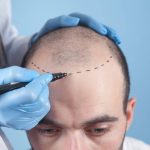Adjusting to Your New Life After Obesity Surgery
Life after obesity surgery marks a significant transformation, both physically and emotionally. The first few months post-surgery are critical as your body adjusts to the changes made during the obesity surgery procedure. Weight loss is rapid initially, but it slows down as your body settles into its new, smaller size. During this time, it’s important to follow your surgeon’s advice closely, including dietary restrictions, exercise routines, and follow-up appointments. Adjusting to a new way of eating and living is key to long-term success. Your body will require time to adapt to the new digestive processes, and maintaining patience and discipline is crucial in order to avoid setbacks and ensure lasting results.
Adhering to Dietary Guidelines After Obesity Surgery
A major part of life after obesity surgery is following a new, structured diet plan. Immediately after surgery, you will be on a liquid diet, gradually progressing to pureed foods, and eventually to soft solids. The goal is to avoid overloading your stomach, which could lead to complications such as vomiting or stretching of the stomach. Portion control becomes crucial, as your stomach will have significantly reduced capacity. The guidelines provided post-obesity surgery typically emphasize nutrient-dense foods, such as lean proteins, vegetables, and fruits, while limiting sugars and high-fat items. This new way of eating supports both weight loss and overall health, helping to avoid nutritional deficiencies. It’s important to work closely with a dietitian to ensure you are getting the right balance of nutrients as you adjust to your new eating habits.
Physical Activity and Exercise After Obesity Surgery
After obesity surgery, physical activity plays an essential role in maintaining weight loss and promoting overall well-being. In the first few weeks following surgery, you will be advised to start with light activities such as walking to help prevent blood clots and improve circulation. As you progress, your exercise routine can gradually increase in intensity. Incorporating both cardio exercises and strength training will help you maintain muscle mass, which is crucial since rapid weight loss can sometimes lead to muscle loss. Regular physical activity also helps boost metabolism, improves mood, and reduces the risk of obesity-related health conditions. Consistency is key—aim for at least 150 minutes of moderate aerobic activity each week, along with muscle-strengthening exercises.
Dealing with Emotional Changes After Obesity Surgery
Emotional changes after obesity surgery are common, and adjusting to your new body and lifestyle can sometimes feel overwhelming. Many individuals experience a surge in confidence and improved self-esteem as they begin to see rapid weight loss. However, these positive changes can also bring emotional challenges such as dealing with body image issues, excess skin, or maintaining new eating habits. Post-surgery psychological support, including therapy or support groups, is highly recommended to help manage any emotional difficulties and to adjust to the changes in your life. It’s important to be patient with yourself and seek professional help when necessary to ensure that your mental health is supported as much as your physical health after obesity surgery.
Follow-Up Appointments and Ongoing Care After Obesity Surgery
Follow-up care after obesity surgery is essential to ensure long-term success. Regular visits to your surgeon, dietitian, and mental health professional will help monitor your progress, address any concerns, and make necessary adjustments to your care plan. These check-ups are crucial in identifying and treating potential complications early, such as nutrient deficiencies or weight regain. Your healthcare team will assess your weight loss progress, nutritional intake, and overall well-being. Additionally, blood tests will likely be required to monitor vitamin and mineral levels to avoid deficiencies. Staying committed to these follow-up appointments and continuing to follow the advice of your medical team is key to maintaining the positive changes achieved through surgery.
Managing Weight Regain and Staying on Track After Obesity Surgery
While many patients experience substantial weight loss after obesity surgery, weight regain can occur if healthy habits are not maintained. It’s important to recognize that surgery is just a tool to help you lose weight—it’s up to you to maintain a healthy lifestyle afterward. If you notice weight creeping back on, it’s important to assess your eating habits, physical activity levels, and emotional health. Working with a dietitian or joining a support group can provide guidance to help you get back on track. Small lifestyle changes, such as portion control, mindful eating, and increasing physical activity, can make a big difference in preventing weight regain. Staying committed to your health goals, even after the initial weight loss phase, will ensure that the benefits of obesity surgery are lasting.
Living Your Best Life After Obesity Surgery
Life after obesity surgery can be incredibly rewarding. Not only will you likely experience significant weight loss, but many patients also report increased energy, improved mobility, and a reduced risk of obesity-related diseases. The improvements in health often go beyond physical changes—patients often feel more confident, less self-conscious, and more engaged in their daily lives. However, achieving long-term success requires ongoing commitment to a healthy lifestyle, including proper nutrition, regular exercise, and emotional support. Life after surgery is not without its challenges, but with the right approach, it can be a fulfilling and transformative journey.
Conclusion
Life after obesity surgery is a journey of transformation, and it’s important to be prepared for the changes that lie ahead. From adjusting your diet and incorporating physical activity to managing emotional changes and attending follow-up appointments, each step is crucial to ensuring long-term success. While the immediate results after surgery can be dramatic, maintaining those results requires dedication, discipline, and support. Embrace the new lifestyle that comes with obesity surgery, and be patient with yourself as you adjust. With the right mindset and commitment, you can enjoy the many benefits of this life-changing procedure and achieve lasting health and happiness.
Frequently Asked Questions
- How soon can I return to work after obesity surgery?
- Most patients return to work within 2–4 weeks, depending on the type of surgery and recovery progress.
- Will I be able to eat normal food after surgery?
- Yes, but you will need to follow a gradual diet progression starting with liquids, then pureed foods, and eventually solids.
- Is exercise necessary after obesity surgery?
- Yes, regular exercise is essential for maintaining weight loss and improving overall health after surgery.
- Will I need to take vitamins for life after obesity surgery?
- Yes, lifelong supplementation of vitamins and minerals is typically required to avoid deficiencies.
- Can I regain weight after obesity surgery?
- Yes, weight regain can occur if healthy eating and exercise habits are not maintained after surgery.
- How much weight can I lose after obesity surgery?
- Most patients lose 50–70% of their excess weight within the first 12–18 months.
- What types of support are available after obesity surgery?
- Support includes follow-up appointments, dietitian guidance, therapy, and support groups.
- Can I drink alcohol after obesity surgery?
- Alcohol should be avoided for the first several months after surgery, and consumed in moderation afterward.
- What happens if I don’t follow my post-surgery diet?
- Not following the diet can lead to weight regain, nutritional deficiencies, and other health complications.
- How do I maintain motivation after obesity surgery?
- Setting realistic goals, staying connected with your support network, and celebrating progress can help keep you motivated.












